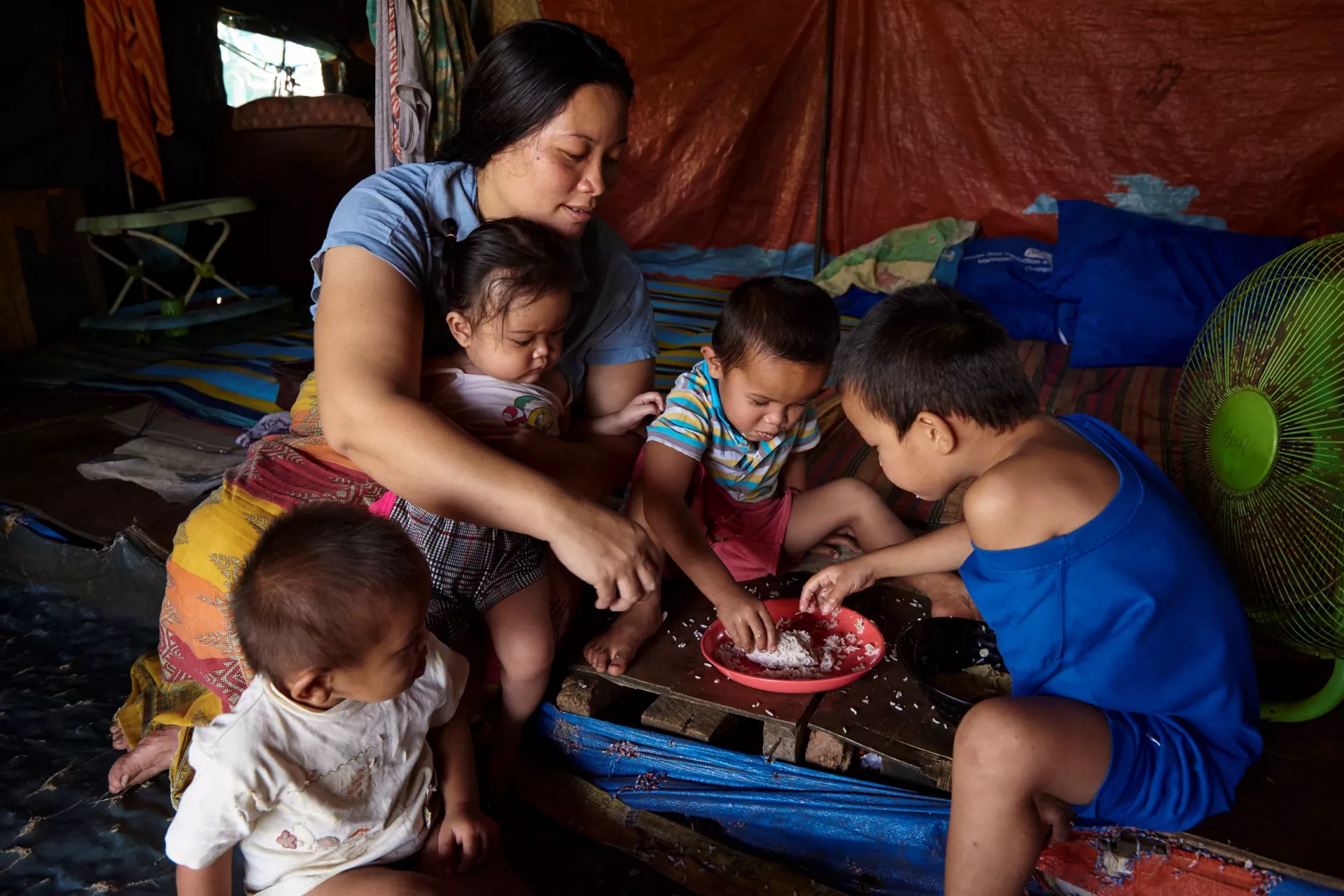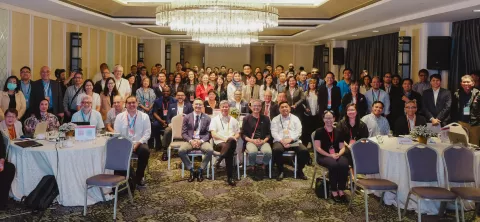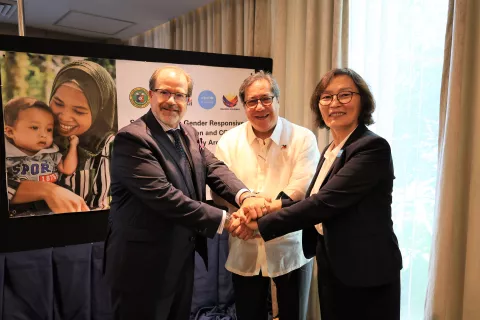Accelerating innovative financial technologies designed for the most vulnerable in a pandemic
ING and UNICEF have partnered to explore innovation in financial technology to help families recover and rebuild their lives from the pandemic

Most people alive are witnessing the scale of a pandemic for the first time. Worldwide, the outbreak is claiming lives—and livelihoods—as health systems are overwhelmed, borders close, and families struggle to stay alive. Yet, even as the spread of the virus slows in some countries, its social toll will be felt for many years to come. In many places, it will linger at the expense of the most vulnerable children.
The longer economies are shut down, the less likely they are to recover. Families are struggling as breadwinners lose their jobs or sell assets in order to survive, driving more and more families deeper into poverty.
In the Philippines, about 17.7 million live below the poverty line—9.3 million of whom are children.
As a result, they are at risk of poor health and nutrition, and are afforded less opportunities to education, training, work, and ways to earn a living, plunging them even further into hardship, now and in the future.
Building resilience
As millions of parents and caregivers struggle to maintain their livelihoods and income, there is a need to scale up social protection measures. Cash transfers, unemployment benefits and skills development are some of the social protection programs that build resilience and connect families to life-saving healthcare, nutrition, and education.
Aside from immediate emergency response, families will need support over the long haul of recovery and rebuilding. In this area we think there is great potential for innovation in the financial technology space to play a role, if these solutions are built for and with the most disadvantaged users.
With millions of Filipinos living in rural and hard-to-reach areas; and with over 52 million adults without bank accounts—how can we ensure that these efforts serve them?
Headlines like “Coronavirus Drives 72 percent Rise in Use of Fintech Apps” show the potential of a pandemic or other global stress to separate those who have from those who do not have connectivity—or even some form of a bank account.
Extending financial services into new areas and helping more youth and families gain financial competencies give governments the capacity for cash transfer and social protection through digital networks. That is why ING and UNICEF have partnered to explore fintech through funding an equity-free investment in, and to subsequently mentor, early-stage open source start-ups in the Philippines.
Inclusive digital economies
The UN Secretary-General’s High-level Panel on Digital Cooperation, convened to advance proposals to strengthen cooperation in the digital space among Governments, private sector, civil society, international organizations, academic institutions, the technical community, and other stakeholders, set out a report entitled “The Age of Digital Interdependence” wherein five sets of recommendations on how the international community can work together to optimize the use of digital technologies, which includes building an inclusive digital economy and society and promoting digital trust, security, and stability.
The UN Secretary-General’s Roadmap for Digital Cooperation sets out envisaged action points on the ways forward for the recommendations. To build an inclusive digital economy and society, it is recommended “that by 2030, every adult should have affordable access to digital networks, as well as digitally enabled financial and health services…” and it calls on “the private sector, civil society, national governments, multilateral banks, and the UN to adopt specific policies to support full digital inclusion and digital equality for women and traditionally marginalized groups.”
Reimagining financial technologies
We have a chance, not only to defeat this pandemic, but to build anew and transform the way we nurture and invest in the young generation. We can provide guidance to employers on how to best support working parents. We can design new social protection solutions that ensure the poorest households can access critical funding. We can steer financial technologies into reaching a new frontier of larger social impact, in the Philippines and beyond.
About the authors:
Oyunsaikhan Dendevnorov is the UNICEF Philippines Representative.
Hans Sicat is ING Philippines Country Manager.
The ING-UNICEF Fintech for Impact initiative will make equity-free investments and engage in yearlong mentorship with start-ups working on fintech solutions that have the potential for greater social impact.
Visit www.fintechforimpact.com to subscribe to announcements and progress updates.




